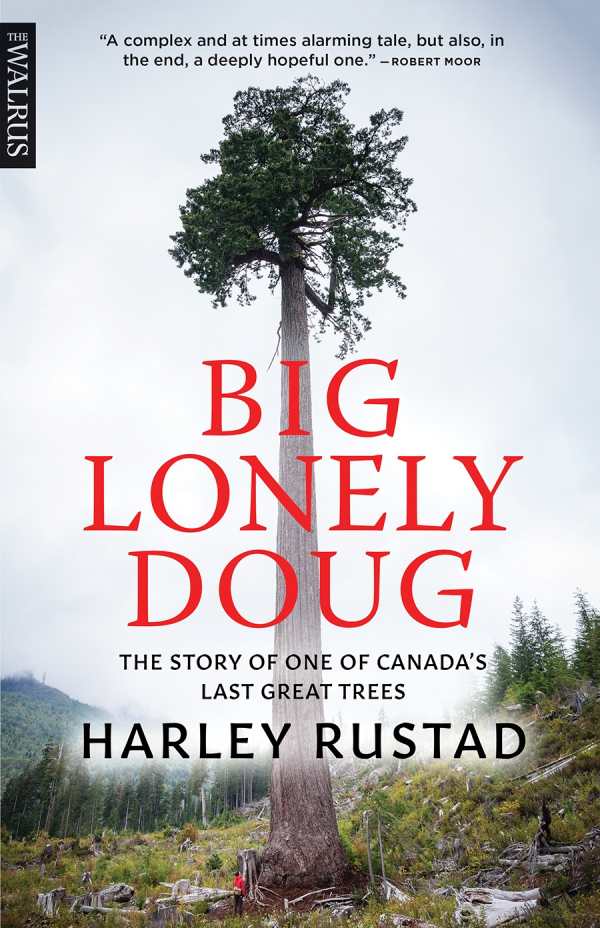Big Lonely Doug
The Story of One of Canada's Last Great Trees
The educational, engaging story of a single tree that became symbolic of environmental activism, Big Lonely Doug by Harley Rustad dramatizes the conflict between human consumption and the environment.
The story revolves around a Douglas fir tree on Vancouver Island, thought to be the second largest fir in Canada, that was singled out to be saved by a logger while the rest of a forest was clear cut. The tree came to be known as Big Lonely Doug. As Rustad writes with emotional clarity, it was “a sole survivor standing amid ruin. And its anthropomorphization resonated with people. It had a name, and a sad one, too.”
The story of Big Lonely Doug unfolds in marvelous detail, with liberal doses of humor, pathos, and conflict. Rustad capably fills out the narrative with excellent descriptions of Vancouver Island’s unique ecological environment as well as novel facts—such as that, because James Cameron’s Avatar had an environmental message, a Canadian environmental organization leveraged the film’s popularity by naming an old-growth forest Avatar Grove.
Rustad weaves in richly drawn portraits of people who have been involved in protecting the celebrated tree, which has become an internationally known tourist attraction. Dennis Cronin, the savior logger, looms particularly large; his simple reason for making sure Big Lonely Doug was not felled was “because I liked it.” Reflecting on his momentous action years later, he added, “It’s like a legacy, ya know?” As important as the tree itself are the environmentalists who rallied around it, and their stories are embedded in this book.
A larger message emerges from Big Lonely Doug: the fact that Vancouver Island “could stand as a model where healthy ecosystems and healthy timber workforces are not mutually exclusive.” That may be the big tree’s real legacy.
Reviewed by
Barry Silverstein
Disclosure: This article is not an endorsement, but a review. The publisher of this book provided free copies of the book to have their book reviewed by a professional reviewer. No fee was paid by the publisher for this review. Foreword Reviews only recommends books that we love. Foreword Magazine, Inc. is disclosing this in accordance with the Federal Trade Commission’s 16 CFR, Part 255.

